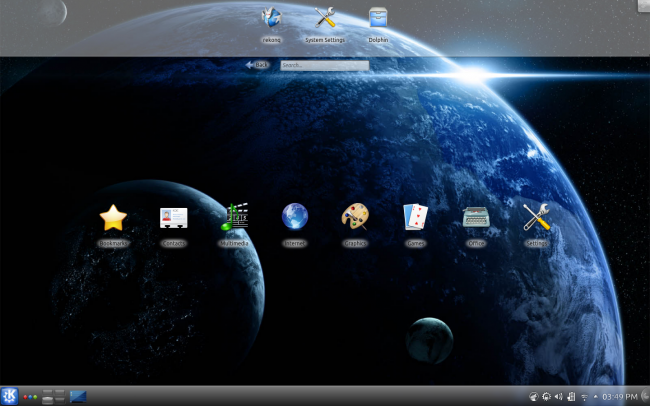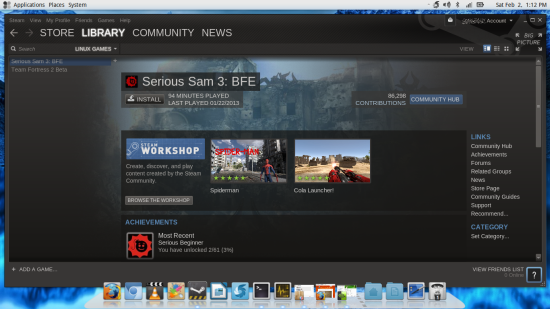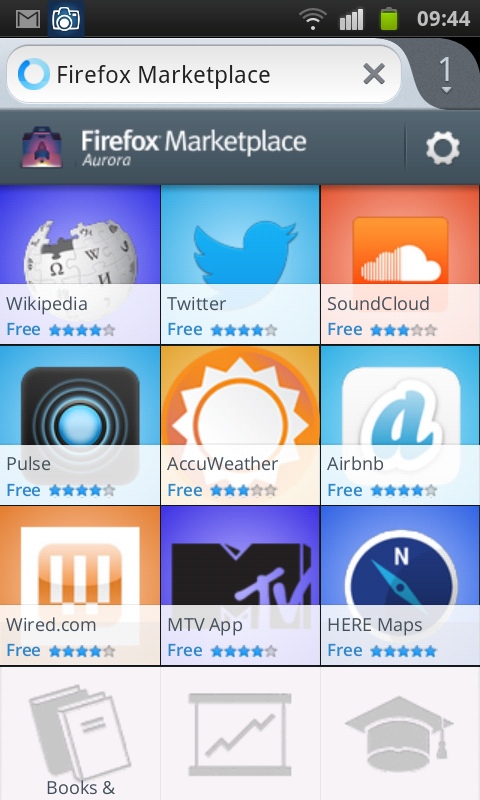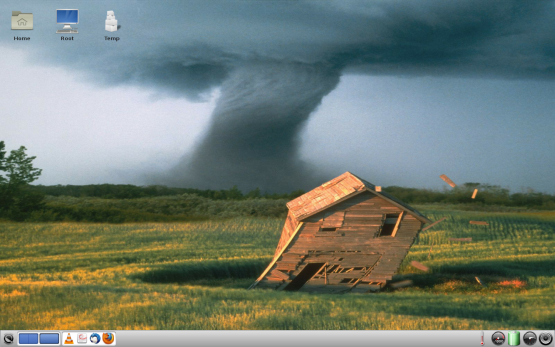KDE Search and Destroy, I mean Launch
April 26th, 2013 by Dedoimedo
In a galaxy far far away, long before there was Android en masse, long before touch was popular, I mean retro-popular, because we have been using the touch technology for at least two million years, long before there was any modern, simplistic interface for smartphones and tablets, there was KDE. It’s all in the name. KDE is one of the few remaining staple desktop environments of the Linux world. It’s been around forever, and it does not seem to be slowing down. In fact, it’s evolving and growing. So far so good. One big thing that sticks to KDE is… Continue Reading
What’s new in KDE 4.10
April 9th, 2013 by Luis Augusto Fretes Cuevas
KDE’s transition from 3.5.x to 4.x was a traumatic experience for many users, many regressions happen and there’s a general consensus among observers that 4.x was released prematurely, an opinion not shared by some developers that argue they needed feedback and bug reports. Thankfully those times are behind us and I can assure you that the next big revision of KDE will not be traumatic at all, it will be exciting and stuffed with many new features. We will talk about the move to framework 5 and Plasma 2 as they get more mature, but today let’s enjoy a new… Continue Reading
Why Nokia and Linux failed, so far
March 30th, 2013 by Dedoimedo
Before you judge me by the article title, please read carefully. I have a very important message, and it has everything to do with the commercial and public image success of Nokia, and Linux. We will begin with the former. To wit, here’s a brief introduction. Introduction In the early 2000s, Nokia was deemed the king of ergonomics. Its phones were designed with style, but more importantly, the operating systems and the menus were consistent, easily accessible and rather intuitive to users. As the smartphone market began to boom, Nokia chose a somewhat more conservative approach to design and user… Continue Reading
Diverging paths: KDE v. Unity
March 30th, 2013 by Luis Augusto Fretes Cuevas
Unity even 2 years and a half after it was introduced remains a contentious feature and source of constant debates. It seems like there’s no middle ground, either people love Unity or hate it. In this sense, and not in many others, Unity is like KDE 4. To better represent how these two compare we will try to explore them like a new user would, starting with KDE followed by Unity. KDE An empty desktop with a cashew and single panel containing a menu button, a system tray and a clock. Seemingly as straightforward as it gets. The only apparently weird… Continue Reading
Firefox Marketplace – A caravan, for me ma!
March 18th, 2013 by Dedoimedo
Gold rush, in the digital form. That is, ladies and gents, what we call the mobile market. A success of one is an indicator of potential success for many. Hence, you get the proliferation of mobile operating systems for mobile devices. You have iOS, you have Android, some others, and soon, you might have FirefoxOS. At this point in time, you might be asking yourselves how the title might be relevant to the story. Worry not, it shall all be revealed soon. To boldly go where many have gone before All right, so Mozilla wants a piece of the action,… Continue Reading
Enlightenment desktop – Yes or no?
March 13th, 2013 by Dedoimedo
My experience with the Enlightenment desktop slash window manager hails back to 2007, when I started exploring distributions like openGEU and friends. Then, fast forward two years, I’ve had my first encounter with Bodhi Linux, which comes with E17 as its default desktop. Fast forward some more, and we enter the year 2013, with yet another review of Bodhi. Half a decade ago, I was rather impressed with what the desktop could do. It managed a fair share of bling-bling, smooth transitions, shadows, transparency, and other cool effects, without having to rely on an expensive graphics card. It was all… Continue Reading
Netflix and Linux
March 11th, 2013 by Luis Augusto Fretes Cuevas
There’s a simple workaround to use Netflix in Linux, it isn’t perfect or very stable, and according to some it doesn’t always work, still, if you scroll down you can find instructions to install it. Look, I think we all should understand that Linux represents a very small portion of the desktop user base of any product, so we shouldn’t feel entitled to get all services other vastly more popular operating systems are getting, instead we should celebrate when an important service hits Linux, like Steam. One of the best developments to happen to open source, and that Linux users… Continue Reading
Linux and the Chromebook Pixel
March 4th, 2013 by Luis Augusto Fretes Cuevas
Google recently released its first Google laptop. It took the world by surprise, while there was a leak a few days before the device was still far from confirmed and even further from expected. ChromeOS is used in many low-end laptops, Chromebooks have pretty much become the successors of netbooks. However, the Pixel is different: instead of being akin to netbooks it’s more like a high-end ultrabook, a new category of its own. I’ve argued before that Linux has yet to have a significant impact in the desktop operating system market not because it traces behind in any significant way technologically… Continue Reading








